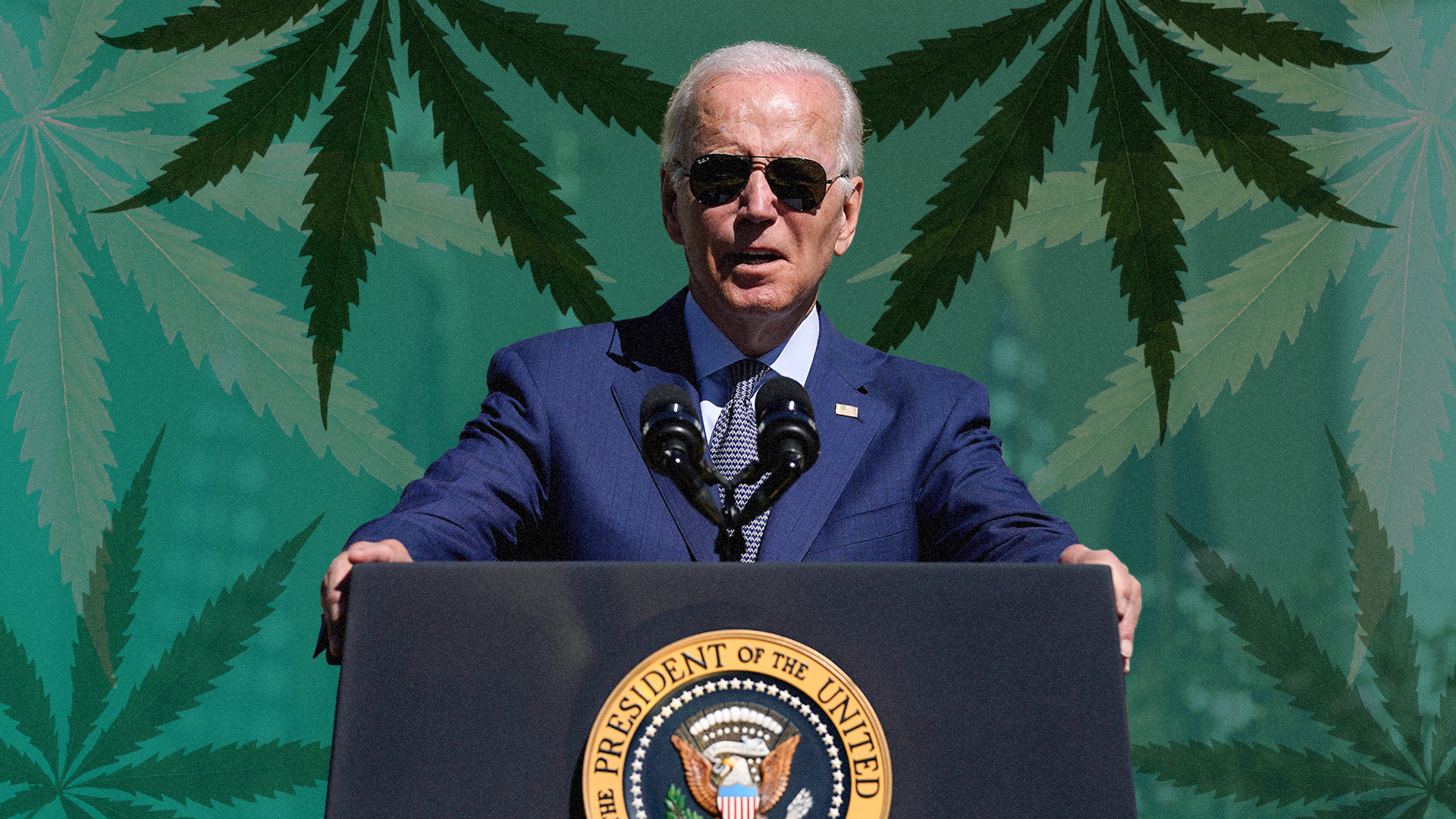Image via
Over 3,000 federal cannabis prisoners will remain behind bars for “cannabis crimes” — that are not illegal in many parts of the US anymore — despite President Biden’s recent mass pardon.
Unfortunately, the pardon was aimed at US citizens or legal permanent residents charged with federal simple possession, nothing more. The thing is, most simple possession cases are state-level issues, not federal. So the number of people this pardon helps is small in the grand scheme of things.
Reason reports that the pardon could benefit between 6,500 and 10,000 people, none of whom were incarcerated at the time of the president’s announcement, however. And while around 10,000 people may seem like a lot, the truth is it’s a tiny percentage when compared to those charged with simple possession on the state level.
Furthermore, Biden’s action will not release a single federal prisoner! A 2021 report by Recidiviz cites that there are more than “3,000 individuals
currently serving marijuana-related sentences in federal prison.” The report estimates that ending federal cannabis prohibition — a step Biden has steadfastly resisted — would reduce the federal prison population by more than 2,800 over five years.
“Your recent executive order, while a great first step, did nothing to address the thousands of federal cannabis prisoners currently incarcerated in federal prison,” 16 drug policy reform groups noted in a letter sent on October 10 to President Biden. “While your recent executive order will help many, it will not release a single one of the nearly 2,800 federal cannabis prisoners.” Although “eighteen states and the District of Columbia have legalized cannabis,” the letter said, “there are thousands of Americans who are serving long-term prison sentences, including some life sentences, in federal facilities for conduct involving amounts of cannabis that are far less than what dispensaries routinely handle on a daily basis.”
There’s a cognitive dissonance between how Biden is currently dealing with the cannabis issue (leaving prisoners locked up) and his statements about weed not being treated as a crime. Specifically, he said on October 6 that possession should not be a crime. But it’s really missing the forest for the trees because making possession admissable does nothing to upend the heavy prosecution of growers, distributors, and people in the once-illegal supply chain who get locked up with disturbingly long prison sentences.
A man by the name of Edwin Rubis has served more than two decades of a 40-year federal prison sentence for participating in a distribution operation. Even considering his “good time” credit, the Washington Post reports that he is not scheduled to be released until August 2032. Biden is willing to leave people like Rubis locked up for selling cannabis to others, which is legal in most states, thanks to the proliferation of medical cannabis laws. But selling weed is fully legal in 19 states across the US that allow adult use.
Regarding cannabis consumers — those who possess the plant — Biden thinks a blanket pardon is appropriate. When it comes to the people who supply those consumers with the plant, however, he draws a divisive line, insisting on individual assessments requiring to go through a backlogged system that rarely leads offenders’ to relief.
When Rubis was locked up, he had two children, then 3- and 5-years-old, and a third was on the way. “He hasn’t been able to watch his kids grow up,” The Washington Post notes, “and dreams of rebuilding relationships lost to time…He’s worried that by the time he is released, his mother and father will no longer be alive.”
The Post explains that Rubis, who immigrated to the US from El Salvador with his family as a child, has “earned three degrees, including a master’s in Christian counseling, and is working on his doctorate, mentored others who are incarcerated, worked as a law library clerk and as a dental assistant, and led Christian Bible studies.” He “has gained the support of prison staffers, including a unit manager, the staff chaplain and a library supervisor, who wrote letters submitted in a court motion to reduce Rubis’s sentence, describing how Rubis is kind and patient, has a positive attitude and is dedicated to bettering his life and others.”
What’s particularly infuriating is that Rubis has done everything to demonstrate “rehabilitation.” This occasionally earns federal prisoners clemency. According to Reason, this approach suggests his imprisonment from the beginning was carried through to keep someone in prison, not because they had done something terribly wrong, let alone violated someone’s rights.
“I’m keeping my promise that no one should be in jail for merely using or possessing marijuana,” Biden said on October 6. “None. And the records, which hold up people from being able to get jobs and the like, should be totally expunged. Totally expunged.”
That mercy, Biden added, does not extend to people convicted of other marijuana offenses. “You can’t sell it,” he said. “But if it’s just use, you’re completely free.”
According to the Biden administration, anyone falling into that category was already free. Unfortunately, promising expungement is more than Biden can deliver.
“No one should be in jail because of marijuana,” Biden said while running for president. “As president, I will decriminalize cannabis use and automatically expunge prior convictions.”
His mass pardon did not accomplish either of those things, which are beyond Biden’s powers “as president.” This pardon hardly did anything.











